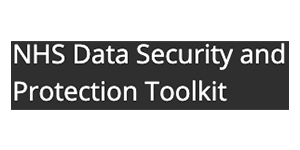Babylon/GP at Hand – AI vs HI
With all the debate going on it seemed right to tackle the question of AI and in particular Babylon’s grand reveal yesterday.
The stage show was to accompany the latest marketing, not peer-reviewed and published, but designed to look like a scientific paper. The point is that they have trained a computer to pass an exam, for MRCGP.
Exams are necessary but not sufficient to be a GP, as I’m sure they would agree with RCGP, but what have they really achieved with 100 made up vignettes and patients played by GPs? Others will answer much better than me on the safety of the process (follow this brilliant thread by @DrMurphy).
I’ve done my own trial of the AI chatbot based on two diseases I’ve personally had in recent months.
“Toenails brown and broken” I start. “Please rephrase…”
“Brown and broken toenails”, and so on. Absolutely no idea from Babylon, who end up asking, “Do you have any other symptoms?”
So I move on to my next trial:
“Wrist pain”. At least they recognise this, and there follows over four minutes a series of 39 questions, of which only 3 seem to me to be relevant, and the diagnosis comes out as:
“8/10 broken bone in the lower arm. Go to A&E”. I answered everything honestly. What I really had was tenusynovitis, tendonitis of the wrist, and I guess rather more common than a broken arm.
The way we do this with askmyGP is to let the patient type in on the very first screen whatever they want, then search for self-care advice. Try it yourself on
Try anything, medical, colloquial, badly spelled, phrases, anything. It’s not perfect but for example my trials above got me in two clicks to fungal nail infection, and the other to wrist pain where tendonitis was one possibility.
I could dress this up as AI and call it the answer to everything, but really it’s just our own algorithm to search NHS Choices better than its own search. It works, and crucially it’s very fast, much faster than having to register wtih all the details and answer 39 questions one after the other. Remember that most patients’ first concern is speed and convenience and this search costs nothing.
We had a clever history taking algorithm in our version 1 software, and very good it was too, but not good enough. Patients got bored and GPs got fed up with too much irrelevant information.
The much simpler interface, respectful of patients’ ability to express themselves, has proven hugely more popular and that has enabled us to move over half the demand online with practices that really understand the benefits.
You have no doubt heard of Elon Musk, technology billionaire and founder of SpaceX and Tesla motors. On that company’s calamitous production problems, flowing from their overambitious automation, he said last month, “My mistake. Humans are underrated.”
You probably haven’t heard of Dr Ellen Stofan, former NASA chief scientist, who said last year they are sending a human to Mars because they’ll get more information, sooner and cheaper than by sending a robot.
I’m an engineer, as keen as anyone on the benefits of technology for humankind, but to get benefits we have to understand how computers can help, not pretend with smoke and mirrors. They are good at searches, communications and analytics, simple and repetitive tasks. For the tricky stuff, we need HI, human intelligence.
Who knows what they might do in some unknown future, but we have a problem right now in general practice, and it’s not a lack of intelligence.
There’s a fundamental difference between Babylon’s start point and ours. They work from DISEASE and have put together an algorithm to try to convert Q&A into diagnoses.
We work from DEMAND and very simply get it to the right clinician to triage in seconds and decide how to care.
That is only the start and tomorrow I’ll discuss our Systems Thinking approach to intervention, in which we’ll see that technology is but a small part.
Time will tell which gives the greatest benefit. but for a taster of how much can change in only a couple of weeks just listen to this interview with Dr Dave Triska .
Harry Longman
PS If you’re on Twitter, click to follow Dave @dave_dlt for some moving reports of the change they have undergone.
PPS Did you hear about the latest AC – Artificial Caring?
- Published in Comment
Babylon are getting speed and convenience right
You might be surprised to see the title, and unless you’ve been on a different planet recently you can’t have failed to notice the PR. Babylon/GP at Hand (their NHS service) are brilliant at finding the limelight.
The chief reason is: they offer something that people want, speed and convenience in getting medical help. Who knew?
The sites are very nicely designed, and if you think that’s easy, you haven’t tried. At present they are nicer than ours (watch this space) and looking attractive is important – people buy on emotion even if we kid ourselves that we’re logical.
People of all ages expect to do everything online, and with younger people a huge majority expect it to be on mobile. The experience must be seamless and beautiful.
A colleague of mine told how a complete stranger struck up a conversation while shopping last week. He told in amazement how he got help within an hour from GP at Hand.
But how? The business model is fantastic too. Low cost of service, with low estates overheads as so much is done remotely, and low usage from a largely fit, young, male demographic. As you all know they’ve been able to exclude children, the frail, elderly, chronically ill and women in danger of pregnancy – most of the people who need a GP.
NHS England pretty much told them to, incredible as it seems, undermining the shared risk model of local general practice. Malcolm Grant speaking today doesn’t seem to understand what this is doing to existing practices who are left with the rest. Anyway, the theme has been so well rehearsed elsewhere I won’t say more, but the reaction from GPs led by the BMA has been as pathetic as it has been predictable.
“Foul!” “Placards!” “Marches!”. Anyone would think the whole lot of them were a cartel bent on nobbling the competition with their newfangled ideas. But we know better. GPs are a fine upstanding profession who embrace innovation to improve their service to patients.
And that vote at the ARM to put a cap on daily contacts? The perfect gift for Babylon/GP at Hand, who will pick up more of those patients they have turned away. Only the profitable ones mind.
Next time I’ll look at what you can do to reverse the slide, and it won’t involve marching on Richmond House.
Harry Longman
- Published in Comment
Sometimes the sun comes out
I guess that like me a lot of your time is spent grinding through one (damn) thing after another. In the short days and long nights it can seem like more grind than ever.
So when plans struggled over for years suddenly work it’s a very special day. It feels like the sun coming out on the brilliant white of fresh snow.
Dr AV, a single hander GP in Scotland with 2,900 patients emails me: “Best Friday I have had in 2 years!?”
The reason? He’s in control, he’s reached 50% of demand online, the rest by phone, and he and the team are dealing with everything as it comes in. In the middle of December he writes “We have free slots – many in fact – on any given day !?”
Sorry I don’t even know how to write emojis but I think that means a cheesy grin.
Actually, he’s not the only one, Dr SA has done the same, and she has even more patients. I’m using initials because they don’t necessarily want you all to ring them up at once.
What was it that suddenly made the difference? Last week I promised to tell you if it continued. Well it’s so ridiculously simple that I’m almost embarrassed to say.
We’ve had this idea on one of our powerpoint slides for months, but never really pushed it because no one had tried it so we didn’t know it would work.
The receptionists guide the patient to the practice website and get them to try askmyGP. They are even more effective than the GP giving a telephone message. They love it – they feel empowered too, and when the requests come in they are better equipped to deal with them – many are answered by secure email.
The GPs love it because every single one is saving minutes, and when you’ve 3,000 patients to manage, and preparing for Christmas too, that counts for a lot.
One terribly important point I must make: there is no forcing patients online. You may hear of other case studies where the telephone option has effectiively been removed.. We refuse to condone such an approach – in fact, telephone service improves.
Look, the vast majority of things that we try, fail. You don’t hear about them, and we try a lot, and some of the failures are painfully costly. So when something works, we might as well ? about it.
Anyway, you can see what the receptionists and GPs are directing patients to do on Bramley Demo Surgery.
Very best,
Harry Longman
askmyGP & GP Access Ltd
Comment on the blog
PS You might even say the struggle goes back to 1981 when the electronics lecturer is trying to explain to thicko engineering undergraduate why asynchronous communication is so much more efficient. He wins.
- Published in Comment
What we do with patient feedback
Do you find yourself getting asked for feedback the whole damn time? Ever wonder what happens to it? I admit to being the bloke who stood in the customs area at Luton Airport for 10 minutes, hitting the Friends and Family sad face just for devilment, but please don’t do as I do…
I want to give you some insight as to how we use patient feedback because it’s a big part of our development process and we have some rather good news to report.
The first thing is to get lots of feedback, make it very easy and quick to collect, without being intrusive. So we give every patient the chance after they’ve sent their askmyGP request online. They get two tick box questions and one free text.
The response has been huge, over 2,200 from nearly 20,000 patient episodes, a rate over 11% of users and it shows how much they care about their experience.
We read every one and mark it positive, negative, suggestion or other. Other is mostly don’t know yet, or issues with the practice rather than the software. We get lots of suggestions which is useful. Overwhelmingly the sentiment is positive, the strong themes being speed and ease of use.
The positives are uplifting but in a way they don’t help as they don’t tell you what to do. We’ve been running at about 10% negatives, they can hurt, and sometimes they don’t pull punches
“I absolutely hate this system. Too impersonal, takes too much time.”
So we’ve taken a hard look at the themes and made a number of changes, some quite subtle, over the last few weeks. Two weeks ago negatives fell to 7%, and last week to 4%. It’s wonderful to see. Positives don’t go up, but suggestions do as patients feel they have something to contribute.
Yeah, OK, I’ll end on a positive note, this from a lady last week:
“Amazing service! It has improved my experience considerably. No more calling for 30 mins at 8am and a fast response from the doctors.”
It’s a team effort. Biggest part of the experience overall is the speed of response from the practice and the care from GPs.
Last weekend I was in London and faced all over the Tube with Babylon’s “GP at hand” adverts. If you’re worried about them bagging 150.000 patients, don’t be.
You can do better. Easy.
Harry Longman
- Published in Comment
We need happier GPs
How is your Monday going? If you’re a GP, I already know the answer, it’s busy, because 28% of the week’s demand arrives on Monday, and 3/4 of that in the morning. It’s not news.
News last week was that GP numbers have fallen by 1,300 over the last two years. A bit of a problem when at the half way point to Jeremy Hunt’s election pledge of 5,000 more GPs, we’d have expected growth of 2,500.
We need happier GPs.
The Dutch have happier GPs. Listen to Jako Burgers tell the RCGP conference why (20 minutes or so). Students compete for their GP training places, they recognise it as a top choice.
There are differences in funding and so on, but a lot about the system is similar to ours and they are paid about the same. Practices are smaller, there’s no obsession with scale, and they love the independence.
Let me float this idea for the UK: GP opening hours are too long. For many years now more women have been joining GP, but 8am is too early to be family friendly, and a 6.30 finish is too late. While we’re there, why shouldn’t fathers be at breakfast with their school age kids? Of course they should.
6.30 finish? “You’d be lucky” I hear partners say. Yes, many GPs are working very long days, I’ve heard 12 – 14 hours. Then taking days off. Working with hundreds of practices we almost never come across a full time GP.
I’m not proposing to cut GP working hours, though we should cut pointless overwork. But to spread them out evenly. Operationally it’s much better to work a regular five days, reasonable, family friendly hours, offering better continuity to patients.
I’m not proposing to cut access to GPs, but improve it (clue’s in the name). The difference in pushing back opening from 8 to 9 is an hour – compare with the three week wait forced on many patients. (by the way, the Austrian health department is trying to get GPs to open in the afternoon). Extending hours to 8pm and opening weekends for routines is catastrophic – sucking GP capacity into low demand periods, destroying continuity and burning money.
Understanding demand and flow means help for patients within the hour is not just normal, it’s easy. Minor problems we have with the Transform programme are firstly, we know that GPs starting work at the same time as reception is crucial for daily flow, and 8 is too early for many. Secondly, part time working causes uneven capacity through the week.
While our policy makers focus on inputs, number of GPs, number of hours, we need to look the other way. How do we make GP more professionally rewarding and practically possible?
Jako Burgers: “Happy GPs will do a better job than unhappy GPs.”
It’s not rocket science is it?
Harry Longman
- Published in Comment
GP at hand. General practice in very big trouble.
You cannot have failed to notice Babylon’s GP at hand service all over the media this week. As a PR exercise, on the Today programme, You and Yours, TV, front page of the Times and an almost unheard of positive story in the Daily Wail, it was SIMPLY BRILLIANT.
What you may not have appreciated is the existential threat this makes to regular NHS GPs. While presenting it as “the NHS has suggested that the service may however be less appropriate for…” the list of exclusions is in fact the engine of profit for Babylon. Read the list. It’s 90% of a normal GP workload. It begins with women (twice the consult rate of men in middle years), who are or may be pregnant (more work. And babies – lots of work). All the usual suspects, the elderly, sick, frail, confused and multi-morbid are there. They are work. Babylon doesn’t want them.
Babylon has got something spot on: patients are fed up with the often abysmal service from their current GP.
They want the young, fit and healthy, especially men, who rarely need a GP but when they do, want help fast, and don’t want to bother with going to a surgery unless they have to.
All these patients carry the same capitation. Think: what if you lost half your income and the easy half of your population? But kept 90% of the work? If it isn’t obvious yet, GPs will go under. That may not be you, but your neighbouring practice, whose list will be dispersed… to you… and you know those dispersed will be high demand. Nice.
They are in London so far, but Babylon’s ambition is limitless and I fear a multiplier effect from the mechanism above. They have the law (practice boundaries abolished), the funding model, the technology, the demographics and clearly the PR on their side. No doubt BMA is dreaming up legal challenges as I write, but they are no match for weasel words backed by £60m of VC money, while changing the law takes years, at best.
If it were simply about better GP services, I would be cheering. But the inevitable consequence is to stoke the Inverse Care Law. Those who most need help will find it most difficult to obtain. General practice will be dramatically less profitable in the hardest areas, and will suffer even in the most privileged. This undermines nothing less than the core principles of the NHS, universal, accessible and free at the point of use.
I will end on a note of hope, because this is not hopeless if we act fast. I founded GP Access & askmyGP with the vision “to transform access to medical care” and some might say Babylon have achieved that.
But our vision is universal. We have no exclusions. We understand the quality and safety from relationship continuity, to say nothing of the professional joy in work.
Although Babylon’s offer is getting the PR, it’s actually not that great. 2 hours for a video? So slow. 48 hours to be seen? So long. Travel within zones 1 – 3? So far to go.
You can beat it. Faster, easier, closer, with the GP you know.
As @stevekellGP tweeted yesterday, “All patients contacting the surgery today for GP help have spoken to GP & been seen if needed. No DNAs, clean start tomorrow. No videos needed” – most of them spoken to within half an hour.
If you haven’t seen his 2 minute interview you really must.
Our vision is of a transformed general practice that you own and you run for the care of all your patients. It is not a transformation done over you by the power of money.
I’ve been saying this for six years. Now wake up GPs, before it’s too late.
Harry Longman
- Published in Comment
Revealed: askmyGP shares NASA Mars mission technology
“We’ll get the information a lot sooner and for a lot less money by just sending a person.” I was dumbfounded. Dr Ellen Stofan, outgoing Chief Scientist of NASA, was talking to Jim Al-Khalili on the Life Scientific about no less a task than finding life on Mars.
It’s a fascinating interview from the start, or jump to the quote at 19 minutes in. So that’s why they want to send a person, not for the ultimate ego trip, but the simple purpose of finding life. Jim pushes her on the reason, doubtless at a cost which is telephone numbers cubed, and it’s simple: humans are creative, flexible and mobile.
All they have to do is break open rocks and look for fossilised microbes. With NASA’s vast resources and access to the world’s best brains, their secret weapon isn’t AI and robotics, but human intelligence.
I’m an engineer and a technophile. I read Wired online and I have three bicycles, one of them all carbon. But I’m ever so wary of the claims made for AI chatbots revolutionising healthcare any minute now.
At Best Practice show last week half a dozen companies were offering some clever algorithm to make your patients go away. They are so seductive, even plausible. But when I ask, “How many patients have actually used them?” I get stonewalled.
Substantial wedges of venture capital say “It must work”. Rather different from asking, “What works?”
What humans are good at:
- searching huge databases in milliseconds
- communicating instantly and securely
- organising and analysing information
What computers are good at:
- solving tricky problems through experience
- building relationships of trust
- caring for people in need
Our philosophy with askmyGP is very clear: we get the computers to do the boring easy bits they do so well, so the humans can get on with the real hard work of looking after patients.
We’re proud to call it HI and we’re on the same track as NASA.
Harry Longman
PS Did I get that the wrong way round? Doh! Must get a new proof reader.
- Published in Comment
Bad general practice is driving out good
Known since before Tudor times, named Gresham’s law in 1860, thoughtful observers have realised that “Bad money drives out good”. When two forms of currency are in circulation, the debased version quickly replaces that of true value. It’s happening now, paid for by the NHS, in general practice.
Oxford CCG proudly trumpets the big numbers, “15,000 extra GP appointments in £4m scheme.” Divide £4m by 15,000 x 12 months and we find the cost per appointment is £67. That’s over twice the fully absorbed average cost of a regular GP appointment.
It gets worse: regular GPs are funded by capitation, not by activity (per appointment) and their contract means they are already responsible for their registered patients who are or believe themselves to be ill. The CCG is paying £6 per patient for a service already fully funded – it’s paying twice. But not the CCG – it comes from an NHS England pot, descended from a GP Access fund which covered less than 10% of England – a lottery as to whether your area is included.
It gets worse: a GP federation officer says it’s for those patients having to wait 2 to 3 weeks to see their own GP. These GPs are failing their patients with an appalling service. They are being rewarded for failure, incentivised to fail more as worse access will move more of their patients into the “extended service hubs”. Patients at GPs offering an excellent service, such as Oak Tree Didcot which we helped over 5 years ago, have no need and no desire to travel further to see a doctor they don’t know.
It gets worse: my Didcot GP friend tells me “it is virtually impossible to find GP locums or recruit GPs because many are now working in these hubs seeing relatively straight forward problems, with 15 minute appointments, whether the patient needs 15 minutes or not.” [and we know that utilisation of slots is low, many will be left empty]
All right thinking people can see this. So why is it happening? Control of the money lies with those who don’t want to see: NHS England, who knows why, Oxford CCG who think they have a “nice” headline, and the GP federation owners so happy to take up the offer of highly profitable light duties. £4m will get soaked up in a year with no difficulty at all, and when the money stops, so will the service. This is the very antithesis of sustainable continuous improvement.
What can you do? Fight this debasing of general practice with every bone in your body. The RCGP, BMA and all in leadership positions should be calling this out. Local GP Dr Helen Salisbury says, “It might be better if we could just fund GPs properly,’ Too right. NHS funding must go to where it is of highest quality, most effective and productive, core general practice.
I don’t like to end without hope, because we need hope, and Gregory Bateson’s analogue is worth noting: “the oversimplified ideas will always displace the sophisticated, and the vulgar and hateful will always displace the beautiful. And yet the beautiful persists.”
Fight for the beautiful.
Harry Longman
PS last week’s launch in Surrey has gone well, GPs dealing with all demand on the day, patients amazed. A couple of examples stood out for me on day one: the lady who walked straight to the desk at 8:35 expecting a queue of 10 and a rammed waiting room: nobody. Look of total bewilderment – “are you open?” And the patient late in the afternoon who, on the way out, stopped at reception to thank the whole team for the wonderful service she’d had. Gets me out of bed every morning.
- Published in Comment
Fancy a 10 hour working day?
I do hope you are thoroughly refreshed and have enjoyed the break from my blog. I mean your work. Oh, whatever, I’ll stop digging.
But I wonder how you view the thought of a 10 hour working day? Horror or relief? It’s relative isn’t it, because to some that would be 2.5 hours over the regulation 7.5, to others it might bring sanity at last to a regime which has been 12 or even 14 hours. People aren’t made for that and whatever you earn, it can make life not worth living.
So I was struck when a GP partner recently said she had this burning ambition for a 10 hour day, when completing our Could you be ready to change? (we do this with everyone thinking about system change. Nothing matters more than having a burning ambition).
Reducing GP workload has been number one topic in Pulse, BMA, RCGP and goodness knows where else, and the bad news is that we can’t wave a magic wand to reduce it. There are lots of factors. One is patient demand, which is remarkably constant, whatever we do. It isn’t going up, though revisiting a Liverpool practice we first helped five years ago is encouraging – demand is down 10%.
But what we can do, and to some this does seem like a miracle, is dramatically improve efficiency. It’s intense, and getting it right means careful analysis of consultation times, modes, referral and resolve rates, but it does work. Unmet demand is a factor, and simply meeting this can soak up a proportion of time freed up by a 20% efficiency gain, but almost always there’s plenty left over for getting the hours down.
Efficiency is our absolute laser focus – how you convert that to your benefit is up to you.
Overwhelmingly GPs tell us “I feel more in control”, as another partner did last month having launched in June, and it’s the control that makes work satisfying, even though it can be intense.
We love what we do and those kind of comments get me out of bed every morning. It will be an early start Monday to be at our first autumn launch in Surrey – I can hardly wait.
Harry Longman
- Published in Comment








Babylon/GP at Hand: GPs need to change their game
In this third instalment on Babylon/GP at Hand the cards are on the table, and you’ll see why.
I’ve looked at what they are getting right, patients’ desire for speed and convenience (don’t blame the patient, think of the last time you were one). I’ve looked at their AI claims, partial, unproven but fundamentally a disease based rather than demand led model.
Now the nub of it: GP at Hand is disrupting traditional practice with a city wide (London only for now) service attracting young, fit, male and mobile adult patients – your most profitable demographic. The exclusions effectively mean
Even a normal healthy female would go through four changes of GP to use this service during her lifetime.
Infant – no. Young adult – yes. Mother – no. Older adult – yes. Elderly – no. “All the world’s a stage…” but only bits of it are covered by NHS Babylon. (Kudos to them for getting Malcolm Grant onto their stage on Wednesday night btw. What was he thinking?)
Let me be absolutely clear where we stand: for high quality general practice covering the whole person, life, family and community. Sounds rather like the RCGP, indeed the NHS. It has to be local to do that (and unit size is irrelevant, except to patient satisfaction which goes up as size goes down).
But to compete against the likes of GP at Hand, and to be profitable in ever more squeezed circumstances, you have to work much more efficiently. Not lilttle 3% tweaks, but 30% leaps. That is exactly what we do.
That kind of efficiency gain (Dr Sue Arnott, single hander, has 4,600 patients) is changing the economics.
The normal experience of askmyGP patients is to send a request online, get a response within minutes and for the 30% or so who need to be seen, it’s today. The record posted last week was a feverish child seen within 12 minutes of sending. GP at Hand can’t touch that.
Safety must be paramount, and two features of the system design are crucial. Firstly it enables you to be responsive, easier to contact by phone as well as online, and we know the average practice should expect a couple of emergency presentations each week. I would never have made this claim, but Dave Triska tweeted on Wednesday, “so far I can count 3 lives saved in 4 weeks by this method.”
Secondly, it enables and encourages continuity by allowing patient choice of GP, and giving GPs total flexibility within the day to provide. Here is today’s BMJ paper, better continuity reduces mortality.
Increasing numbers of practices are asking us where to start, without leaping into the unknown (really not unknown, the once familiar delight of being a doctor) and that’s what we do wtih Pathfinder – Could you be ready to change?
It’s the kind of change which is necessary to stay the same. Don’t give in. Don’t see decline as inevitable. Don’t expect bungs or contract changes to bail you out – not this five year plan.
Use the power you already have over your own destiny.
Harry Longman
PS Please don’t believe me. Believe the GPs doing it, and if you haven’t yet, hear the amazing interview with Dr Dave Triska.
PPS This tweet from Dr Lis Flett moved me: “One of the two patients who wanted a face to face appointment this morning (that’s right, 2) sat with me for half an hour. Many problems solved, patient felt listened to: Medicine the way it should be.”
PPPS Just had an email from Babylon “Babylon’s AI is on par with doctors”. You. Could. Not. Make. This. Up.